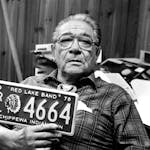Early on in his radiant new memoir, "An Odyssey," Daniel Mendelsohn gives the game away. A professor of classics at Bard College in New York and a frequent contributor to the New Yorker and New York Review of Books, he recounts his 2011 seminar on Homer's "Odyssey," audited by his 81-year-old father, who traveled each week from Long Island to listen to his son's lectures, bantering with undergraduates as they all mused over the mysteries encoded in that most archetypal of journeys home.
As the semester kicks off, Mendelsohn holds forth on the poem's epic structure: "I talked about ring composition, that remarkable narrative technique that weaves the present and the past together, that allows the account of a specific episode in a character's life to expand to encompass his entire life."
Here he winks to his readers: "An Odyssey" will mimic "The Odyssey," threading a narrative present — a classroom nestled within a bucolic campus in the Hudson River Valley, full of bright young minds — with flashbacks that unveil the layered, fraught relationship between the author and Mendelsohn père. Stories set within stories; short, discursive arcs that mirror the larger one; concentric circles; Russian nesting dolls; the border between past and present membrane-thin, permeable, as Odysseus and his son and wife, Telemachus and Penelope, discover in the original poem. Mendelsohn pushes the parallels with skill and passion, occasionally overstating his case, but more often underscoring how and why Homer still resonates today.
At the book's center is Jay Mendelsohn, a former mathematics professor, whose ornery presence in the classroom bewilders and charms the other students and his son. Jay rejects the idea of Odysseus as hero, considering the general an immoral philanderer and poor leader.
We hear Jay rather than see him — Mendelsohn artfully avoids excessive visual details, allowing Jay to define himself through bluster and unexpected moments of tenderness. He's a marvelous character, anchoring the class discussion and nudging his son to different perspectives, not only about the Greek poem but also their family's history.
Mendelsohn identifies a Homeric term that encapsulates his parents' successful (if imperfect) marriage: homophrosynê, or "like-mindedness," the cosmic glue that binds Odysseus and Penelope together after an absence of 20 years. This kind of intimate connection between Greek myths and our own lives reveals the author at his singular best.
After the class ends, father and son take an Aegean cruise that traces the path of Odysseus. Unfortunately, these scenes feel dashed off, failing to deliver on dramatic expectations. And Mendelsohn's prose, while beautiful and precise, sporadically lapses into self-conscious flourishes, as in his masterpiece, "The Lost."
Quibbles aside, "An Odyssey" is a candid, majestic book on the art of teaching and the push-pull relationship between professor and student, especially if the student is one's father: "All semester long I'd vainly envisioned myself as some kind of pedagogical Odysseus, leading them on a thrilling adventure through the text, and in the end I'd turned out to be the Cyclops. … You never do know, really, where education will lead, who will be listening and, in certain cases, who will be doing the teaching."
With this graceful and searching memoir, we all drink from the cup of knowledge proffered by one of our leading philosopher-writers.
Hamilton Cain is the author of "This Boy's Faith: Notes From a Southern Baptist Upbringing," and a former finalist for a National Magazine Award. He lives in Brooklyn.
An Odyssey
By: Daniel Mendelsohn.
Publisher: Alfred A. Knopf, 302 pages, $26.95.





